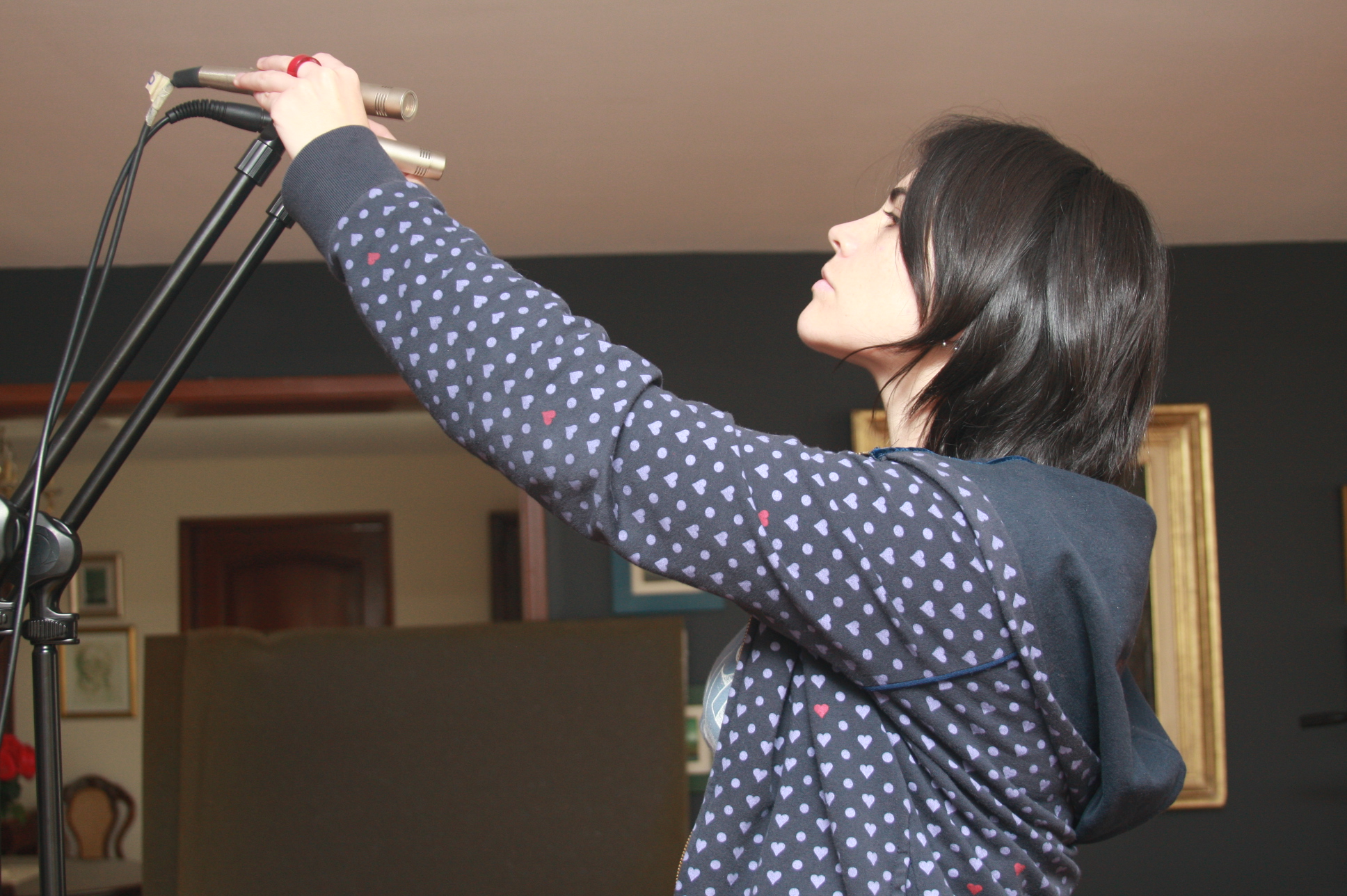
Breaking the Barriers of Sound from Colombia
 Maria Elisa Ayerbe Barona grew up in Colombia and is a recording and mixing engineer, sound designer, and audio educator. (more…)
Maria Elisa Ayerbe Barona grew up in Colombia and is a recording and mixing engineer, sound designer, and audio educator. (more…)

 Maria Elisa Ayerbe Barona grew up in Colombia and is a recording and mixing engineer, sound designer, and audio educator. (more…)
Maria Elisa Ayerbe Barona grew up in Colombia and is a recording and mixing engineer, sound designer, and audio educator. (more…)
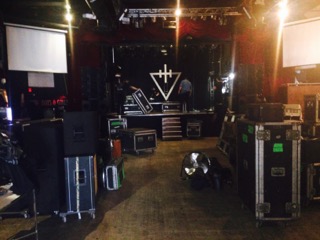
It’s been close to five months since I’ve moved to Toronto to work as a monitor tech. From at least partially conquering my fear of digital boards to working on my people skills, here are some of the more important lessons I’ve learned. (more…)

What goes into being a great tech that engineers request or want to work with? The first in a series of articles on system techs and their advice on what it takes to be a great tech.
Suzy Mucciarone started out as a stage tech and now is well respected system and Engineer and FOH Tech. (more…)
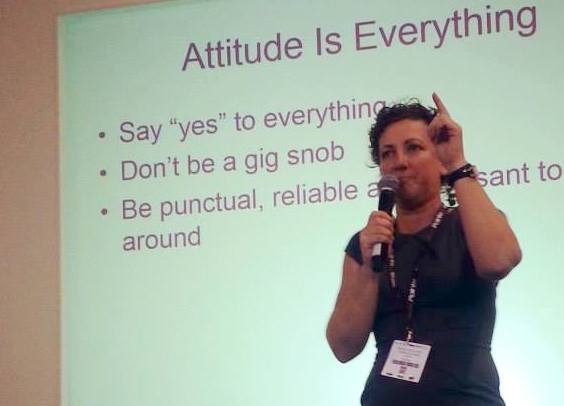
 Creator of Soulsound Agency and the Soulsound.co.uk website and resource centre, Darry de la Soul, has been an engineer and educator. She is passionate about taking the knowledge she and other engineers have gained through experience and passing it on and helping qualified people find work.
Creator of Soulsound Agency and the Soulsound.co.uk website and resource centre, Darry de la Soul, has been an engineer and educator. She is passionate about taking the knowledge she and other engineers have gained through experience and passing it on and helping qualified people find work.
Darryn found herself getting into the world of audio for the same reason many have, because of her love of music. While managing a London nightclub for much of her late 20s, she was more interested in the DJ equipment than tallying the nightly bar take. This prompted her to attend a specialist audio engineering college where she studied studio sound (live sound was not available as an option). Darryn recalls the course was “a revelation in fabulousness and wonder, and I had the time of my life whilst studying.”
Darryn considers herself a bit of an all-rounder, not specializing in FOH or Monitors, Studio or Live. Her very first engineering job was as a full-time assistant in the London venue- 93 Feet East. It was unusual in two ways; one- to start out in an assistant position and Two- that the venue had two full-time engineers. Her job was as assistant to engineer Paul Epworth of Adele fame, whom Darryn has called ‘a total genius.’ She credits Paul as helping her manage the crossover from studio to live sound with only a few ‘deeply embarrassing’ mishaps. She landed the job after assisting Paul on a Royksopp gig during which she managed to fix their sampler.
The venue had a capacity of around 200 and had a Funktion One system installed. Darryn quickly became a devoted fan of the purple boxes.
“After I went freelance, I spent a lot of time working in nightclubs and with one particular promoter who did a lot of obscure electronics, and fabulous electronics/classical crossover events. My secret name for these was “Spawn of the Aphex Twin,” and I had enormous amounts of fun making things go with low budgets, in odd spaces, and with spectacularly odd humans.”
Darryn faced many of the same obstacles that we all do starting out like; “earning enough money to pay the rent (even the assistant’s job paid so badly I was paying my utility bills on credit cards), spiraling debt, and once I’d started freelancing, having no-one but my own mistakes to learn from.”
“I think this is the most difficult thing for people starting in this career. Most entry-level work is solo, so your knowledge base easily stagnates without the influence of more experienced people. Most other jobs in the world are team-based in one way or another, so there is always someone more advanced to learn from. When you fight your battles completely alone, it’s easy to fall into bad habits that stem from ignorance rather than purpose.”
She has never thought that being a woman in a man’s world has held her back. Darryn has also felt that bands liked having her around because “women tend to be more amenable to being that extra bit helpful beyond the call of duty – when it comes for looking out for people (and their feelings), being a bit motherly and so on. I also think having a woman on the bus also reduces the amount of porn being watched in the lounge, which probably suits some men very well too:-). “ Darryn doesn’t believe that men and women differ when it comes to technical skills, “when it comes to mixing, I don’t think there’s a lot of difference. Good or bad hearing is not gender-specific.”
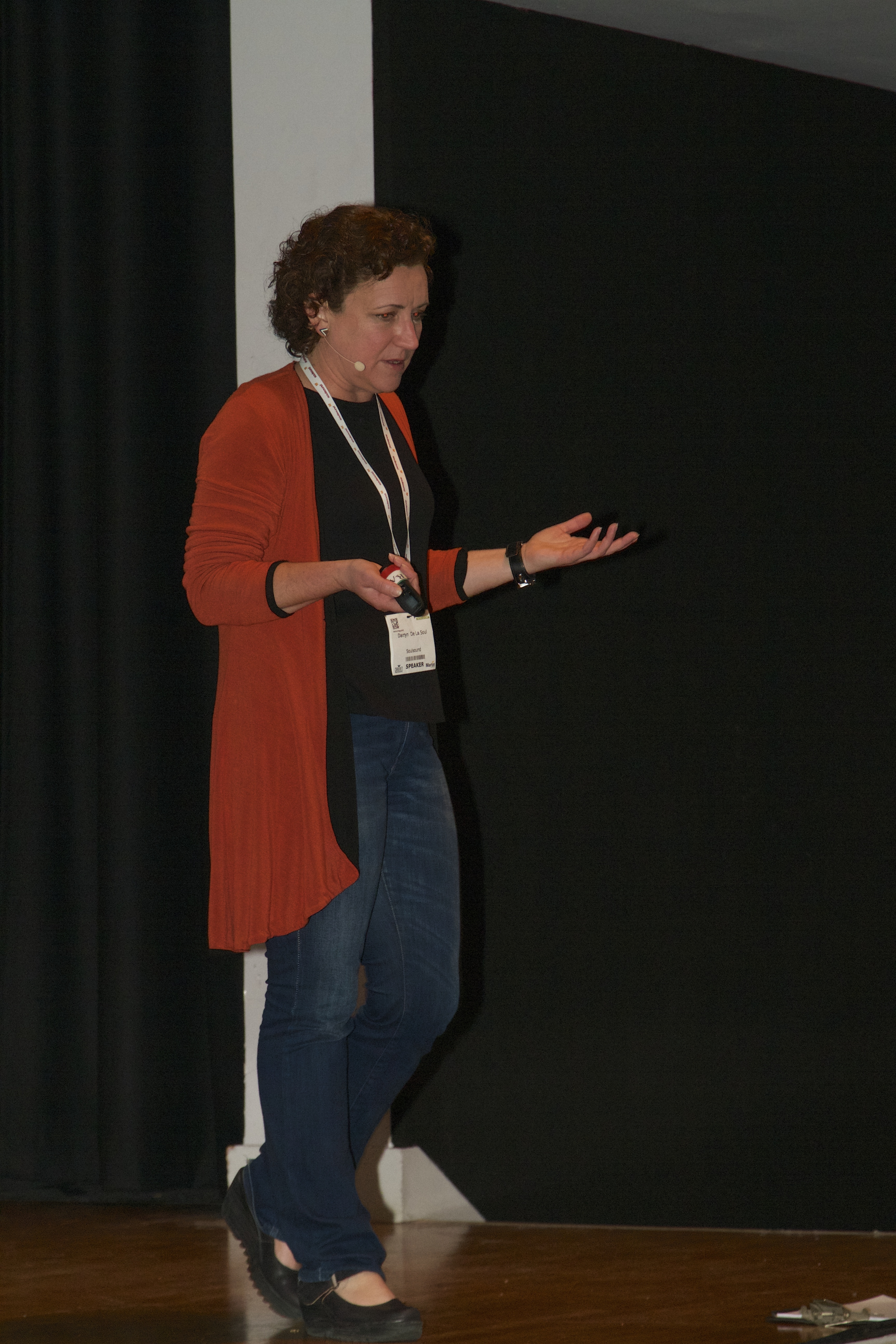
“In 2009 my old college asked me if I would help set up a Live Sound course and teach maybe three days a week. A couple of months into the set-up process and it was clear that it would be a full-time position, as someone needed to do it! So I ended up being “mommy” of the course with people like Marcel van Limbeek and Justin Grealy regularly lecturing, and Jon Burton putting in the occasional guest appearance. All three are now mainstays in Soulsound.”
“At first I tried to keep a few gigs going on the weekends, but running a college course is pretty full-on, and I couldn’t keep up the pace of living in the daytime during the week and at night on weekends. So sadly, I had to wind down the gigs. In the end, though, it was the right decision for me as I feel like I have now found my niche.”
After four years of teaching at Alchemea, Darryn started Soulsound Agency. The idea came as the result of the college course being so successful at creating highly employable, entry-level engineers. Darryn had been using her extensive connections in the industry to find work experience for students and paid work for graduates. During a conversation with one of the graduates she had placed, she learned that the graduate was making more money (through all of the work Darryn had found for him) than she was earning. She realized that all of her time and effort in procuring work for the students was worth something and Soulsound Agency was born. Darryn continued helping graduates find work and slowly built up enough business to be able to quit her job. “I was never very good at working for other people,” she says.
That was in 2012, and the business has grown so much that in 2014 Soulsound kept about 70 engineers in all or some of their income, a fact that Darryn is very proud of.
Along with finding work for qualified engineers, Soulsound.co.uk has an extensive Resource Centre, which is a lifelong learning resource for sound engineers that Darryn along with Justin, Marcel, and Jon developed. Soulsound’s goal is to plug the real-life gaps in formal education and support engineers throughout their careers. Soulsound does this with stand-alone masterclasses, tutorials, interviews, insights, career development and ‘whatever else takes our fancy,’ says Darryn. The great thing about not being restricted to a course curriculum is that we can delve into subjects not often dealt with in classrooms (like bathroom etiquette on a tour bus). We can also take advantage of opportunities, like following Jon Burton around with a camera (or four) while he was working in Brixton Academy (London’s most famous venue) with Bombay Bicycle Club.”
“We are very flexible and so are very good at grabbing opportunities when they are in front of us. We also make an effort to interact personally with our members, and present live seminars whenever we can, particularly at PLASA and other trade shows.”
Darryn is passionate about Soulsound. “I really love what we are doing – which is largely emptying the brains of brilliant engineers onto video, encouraging the pursuit of excellence, and showing people how good they can be!”
What are some of the most important lessons you’ve learned through your career?
One thing I learned early on is that you should do the gigs you don’t feel like doing. The days you really, really don’t feel like getting out of bed – those are the days it’s essential that you do. Those are the gigs you will either learn something amazing, meet someone who will have an influence on your career or find your next band to tour with.
Every gig you ever do will have an influence on your skills and career. No gig too small, I say! Just get out there and do everything that comes your way – don’t be a gig snob… You might not like the genre or the venue or whatever but do it anyway.
What advice would you offer to someone interested in a career in Live Sound?
Do it! It’s one of the best ways to earn a living imaginable. But be prepared for long hours, dirty hands and probably a bit of a struggle when you start out. It’s not an easy choice, but it is a very rewarding one.
And keep learning. If you’re fresh out of college, you’re just at the beginning of your journey. You can never know too much about this game. Learn online, from books, from manufacturer-led training, from each other. Go to as many gigs as you can and watch the engineer – learn from their mistakes, as well as your own.
Meet as many other engineers as you possibly can – being friends with people is a very good way of getting more work, and learning from their experiences.
It’s also worth keeping your eyes open for the many paths that cross with live sound, which may be a better fit for you – consider tour managing, production managing, booking, artist liaison, etc. There are many career opportunities in the live sector that are not directly mixing.
If you’d like more advice on finding (and keeping) work, download Darryn’s free ebook “Getting a Foot In the Door” and check out Soulsound.co.uk
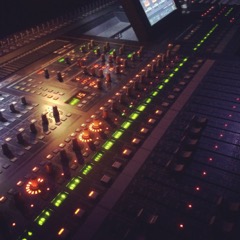
There seems to be an unwritten rule in audio – when you’re new to a bigger club, you start by doing monitors.
I’d been asking a friend about opportunities for work in Toronto for quite some time. So when she hooked me up with a job interview to be a monitor tech at The Mod Club, I knew I had to take it. (more…)

 We are putting together The Girls Guide to Doing Sound, for our summer camp program. We are taking submissions to be included in the guide of tips for mixing live sound. We are looking for the unusual tips, that you only learn as you experience them. Everyone that contributes their tips will be entered into a contest to win some cool prizes. We are looking for fun tips like:
We are putting together The Girls Guide to Doing Sound, for our summer camp program. We are taking submissions to be included in the guide of tips for mixing live sound. We are looking for the unusual tips, that you only learn as you experience them. Everyone that contributes their tips will be entered into a contest to win some cool prizes. We are looking for fun tips like:
When mixing Mariachi Bands, watch out – They probably will not sound check in their costumes or with their sombreros. Note: Sombreros will aggravate feedback problems during the show. This applies to hats with brims, glasses, teeth, etc.
Equipment typically does not like liquid poured into them and can cease to work properly.
Vocal Sound – deteriorates during the show – Swap out the vocal mic. It may be filled with sweat and spit.
For each tip you contribute you will be entered into the contest. Tips can include survival techniques as well. Contest deadline is May 31, 2015. Send your tips to soundgirls.org@gmail.com
Some of the cool prizes include:
Hardcover copy of WELCOME TO GROOVE HOUSE, by Jill Meniketti
SoundGirls.Org T-Shirt and Stickers
Sennheiser Baseball Hat
Rat Sound Systems T-Shirt
Pearl Jam T-Shirt
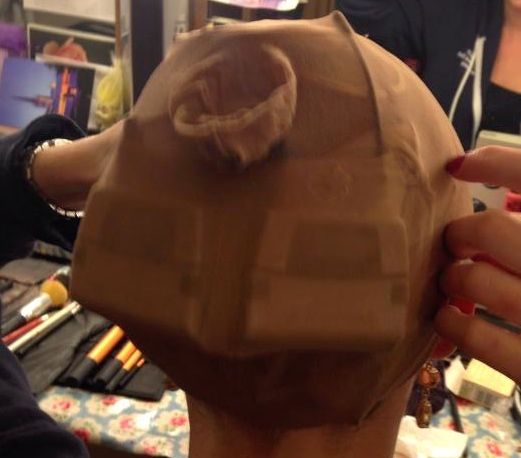
It happens to everyone at some point. That crucial bit of kit fails at the wrong moment. The radio mic on the lead has sweat in the mic head or the connector. Someone in the Brass section has knocked water into the stage box. The touch screen is out of alignment and instead of hitting save you hit load new session. It’s going to happen the machines are out to get us, and you better have a backup plan. (more…)
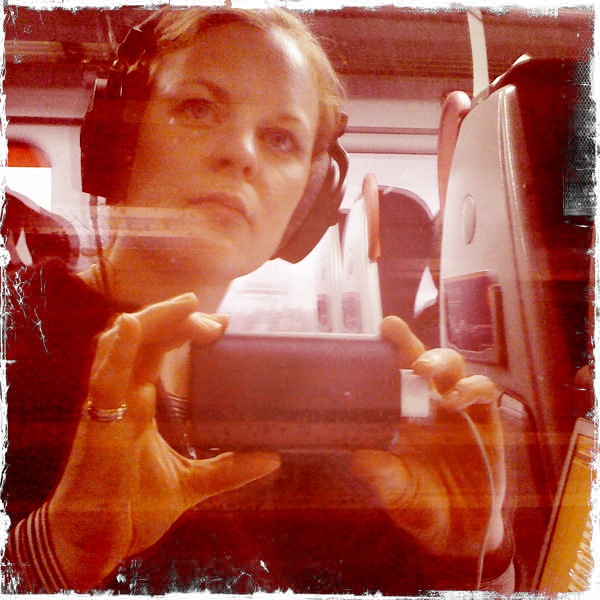
It’s not a mic, a recorder, and it’s definitely not a plugin. The best sound design tools you have are attached to you, your ears. (more…)
The Production Sound Mixer controls recording levels, equalization settings, track assignments, media formatting and oversees the creative and technical operation of the Production Sound Crew while bringing the Director’s story to life. Being the department head, the mixer has the responsibility of interacting with the producers, editors and other department heads on the production to achieve the goals of the director and deliver the highest quality of the spoken word from the actors. The job of the Production Sound Department is separate from Post Production Sound in that it is concentrated in the area of live filming while the cameras are rolling, and actors are performing.
The Microphone Boom Operator is responsible for the critical task of microphone placement. The Boom Operator uses the “boom pole” or “fish pole” with a microphone mounted on the end. These can extend upwards of 15’ to swing over the camera, lights and actors on set. When space permits, the “Fisher Boom”, is used. This is a special piece of equipment that gives the Boom Operator a more precise control over the orientation of the microphone, and a greater range of movement. When circumstances limit the use of either of the booms, wireless microphones are used, mounted to the actor’s body or clothing.
The Utility Sound Technician provides a variety of much-needed assist skills to the Production Sound Mixer and the Microphone Boom Operator, including the operation of an additional boom pole when needed, assisting during the placement of microphone “plants” (which are hidden microphones that are strategically placed on the set in order to capture dialogue from the actors,) placing radio microphones on actors while hiding the radio transmitters under their wardrobe, additional occasional recording, additional playback, assisting with on-set wireless communications, providing other departments with listening devices, keeping inventory, ordering necessary additional equipment, quieting noisy props, footsteps, crickets and other tasks that help the Production Sound Crew work quickly and avoid delays in production.
Courtesy of Peggy Names.